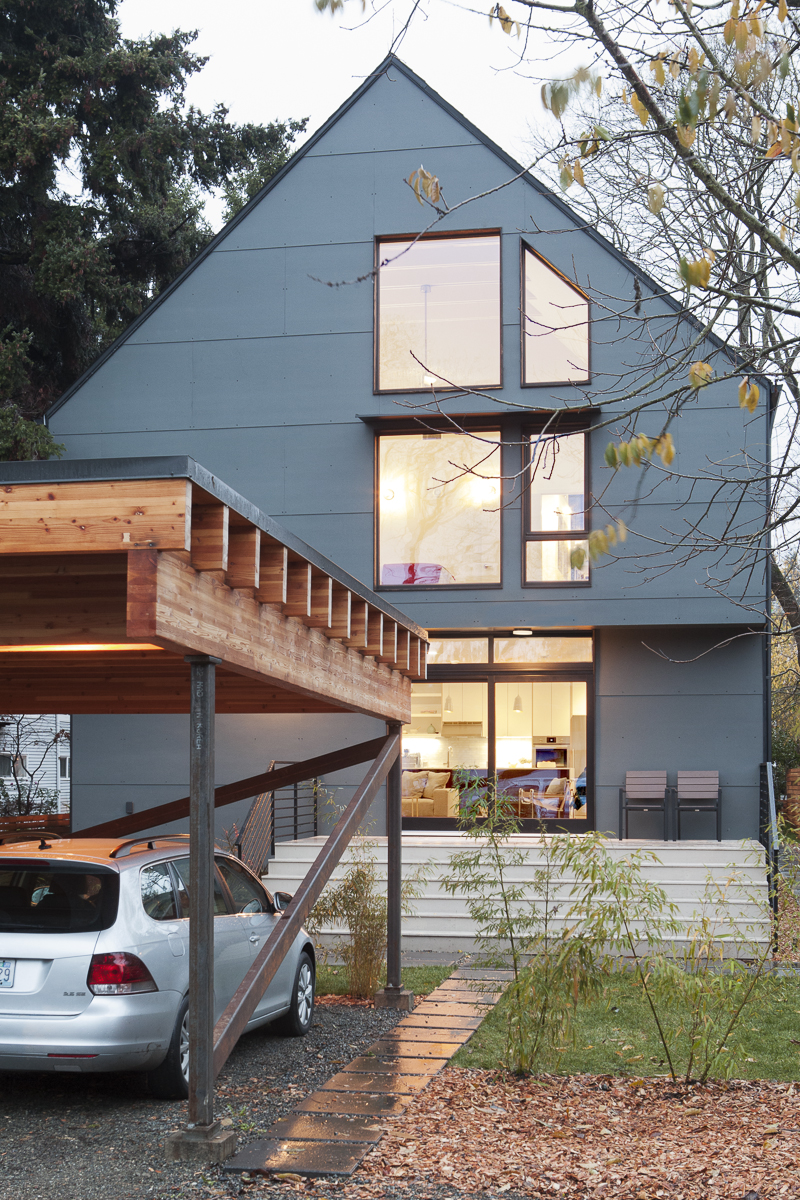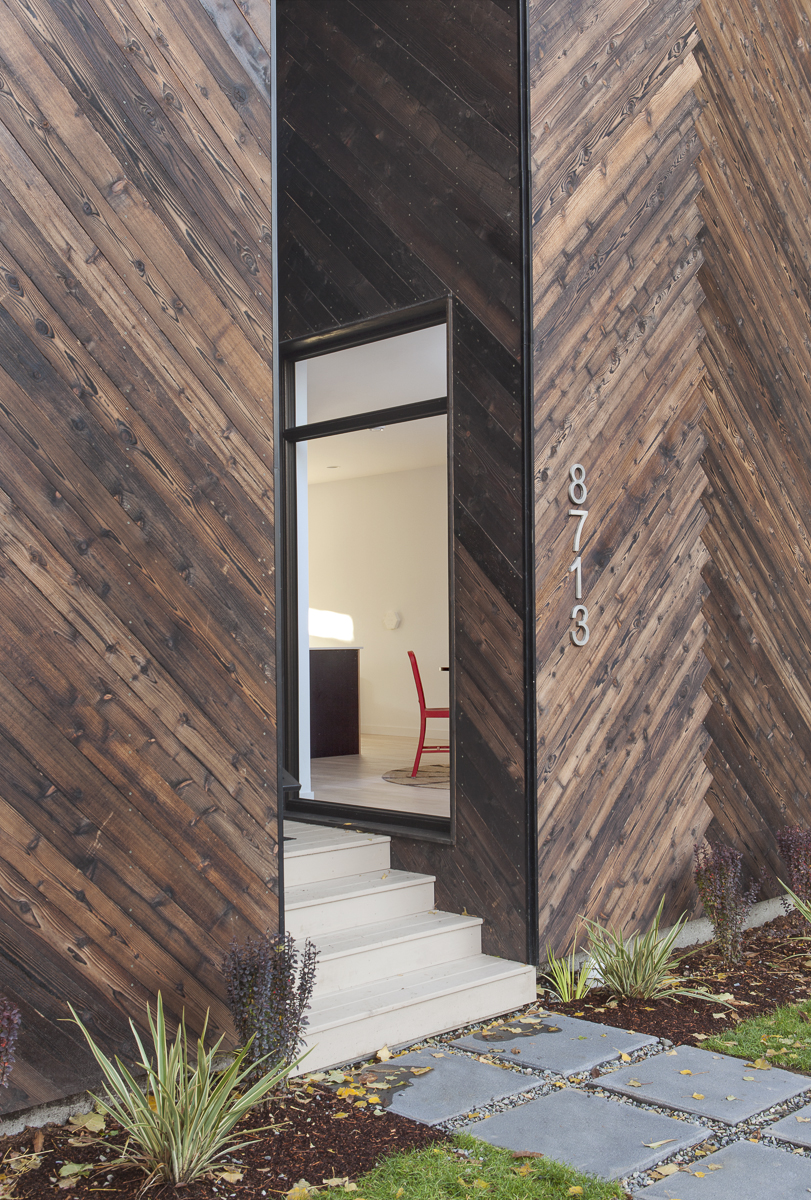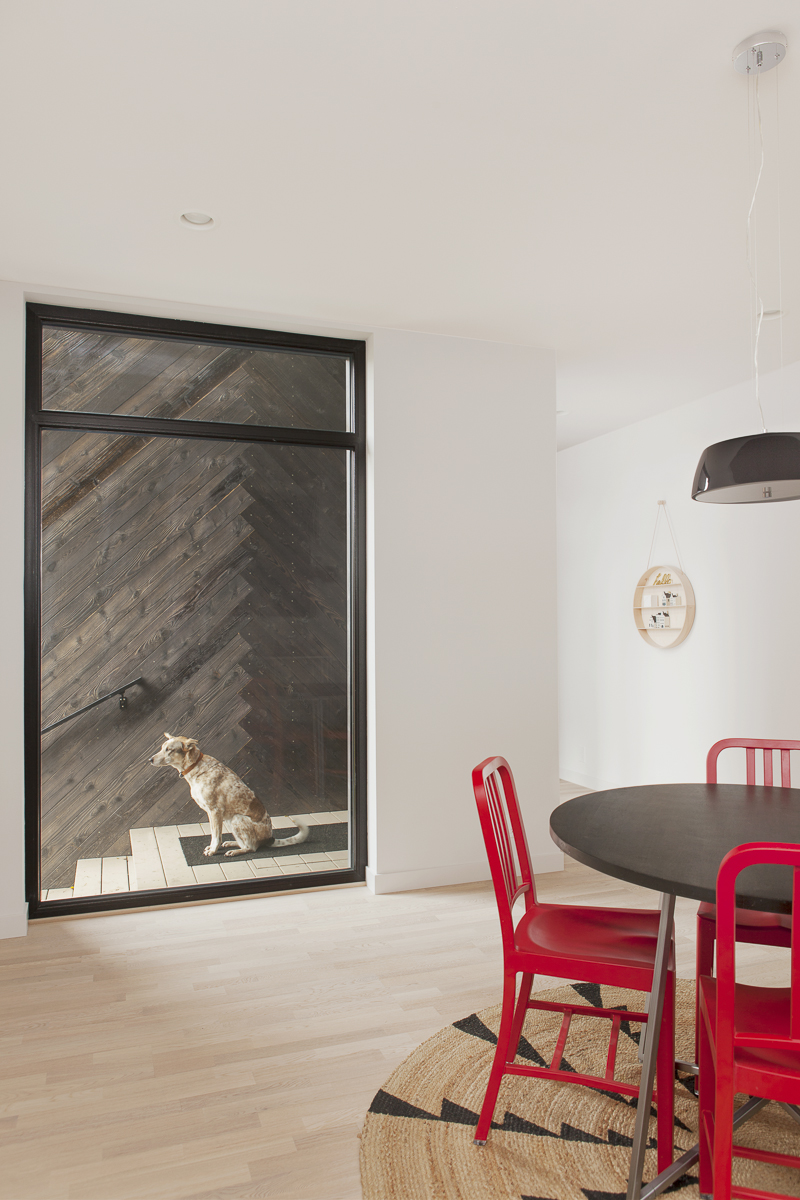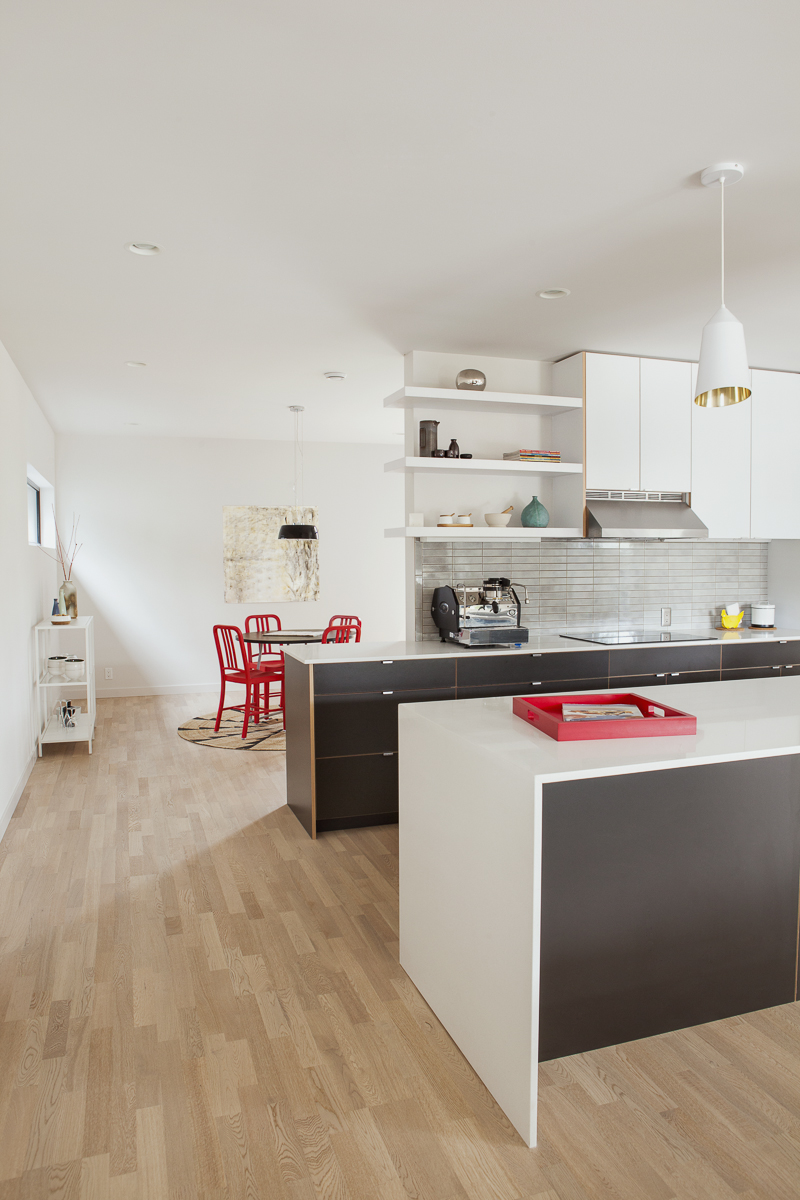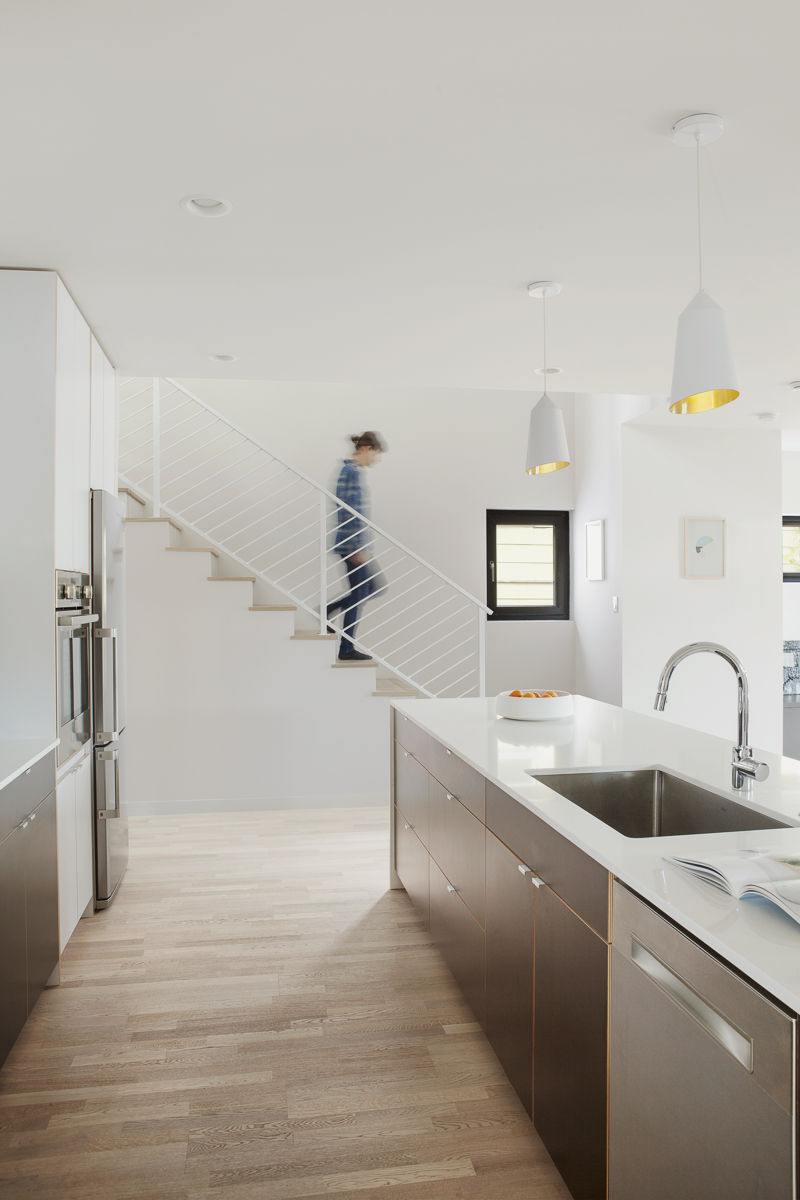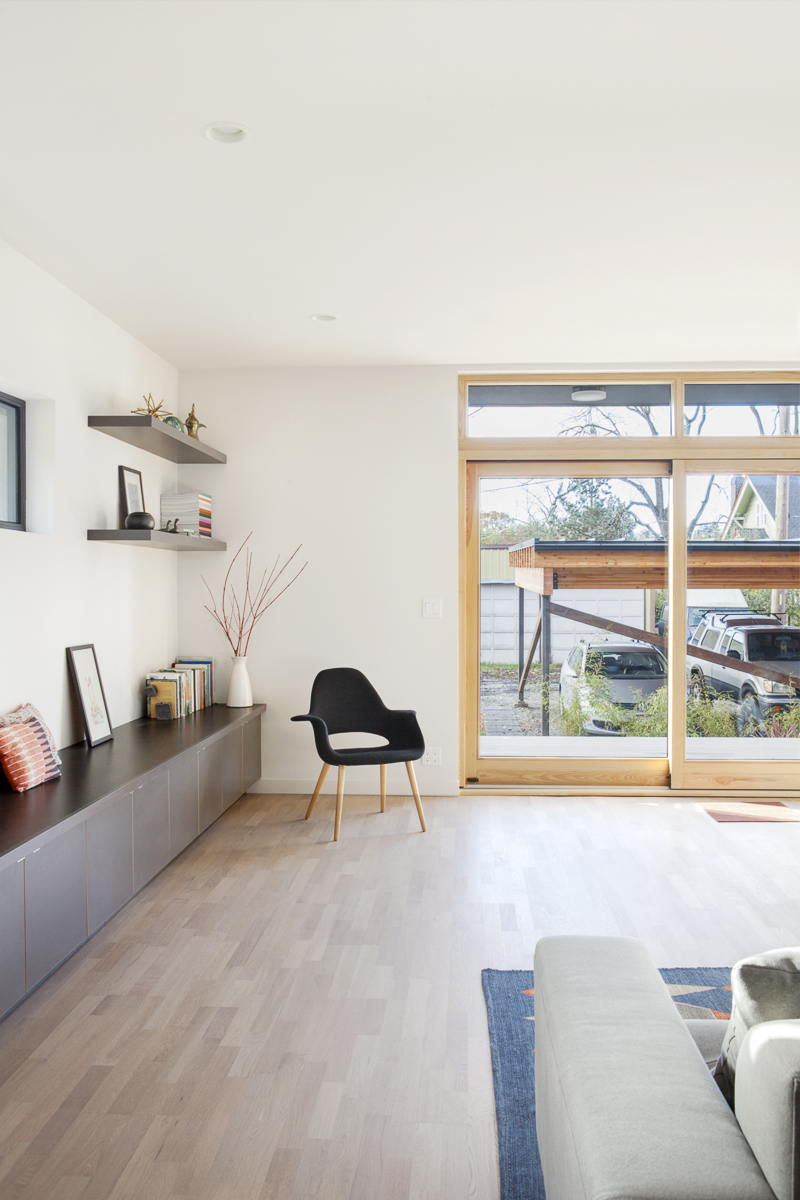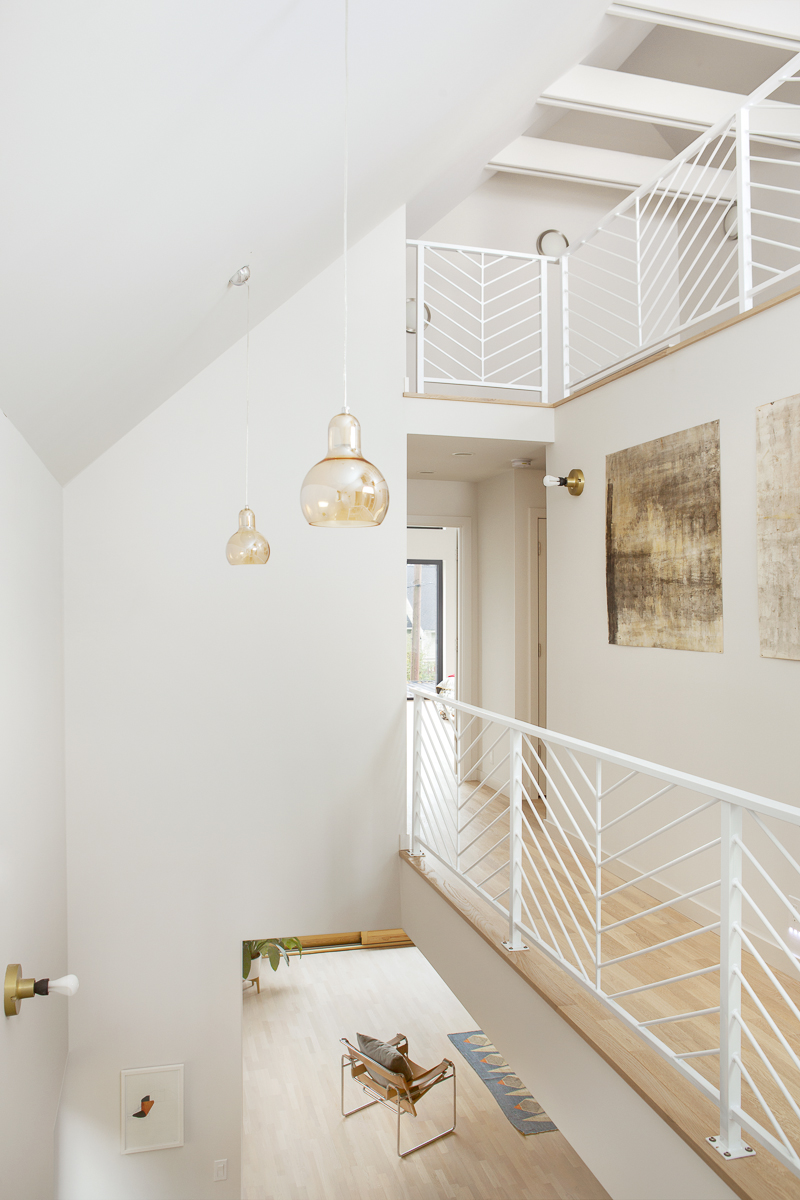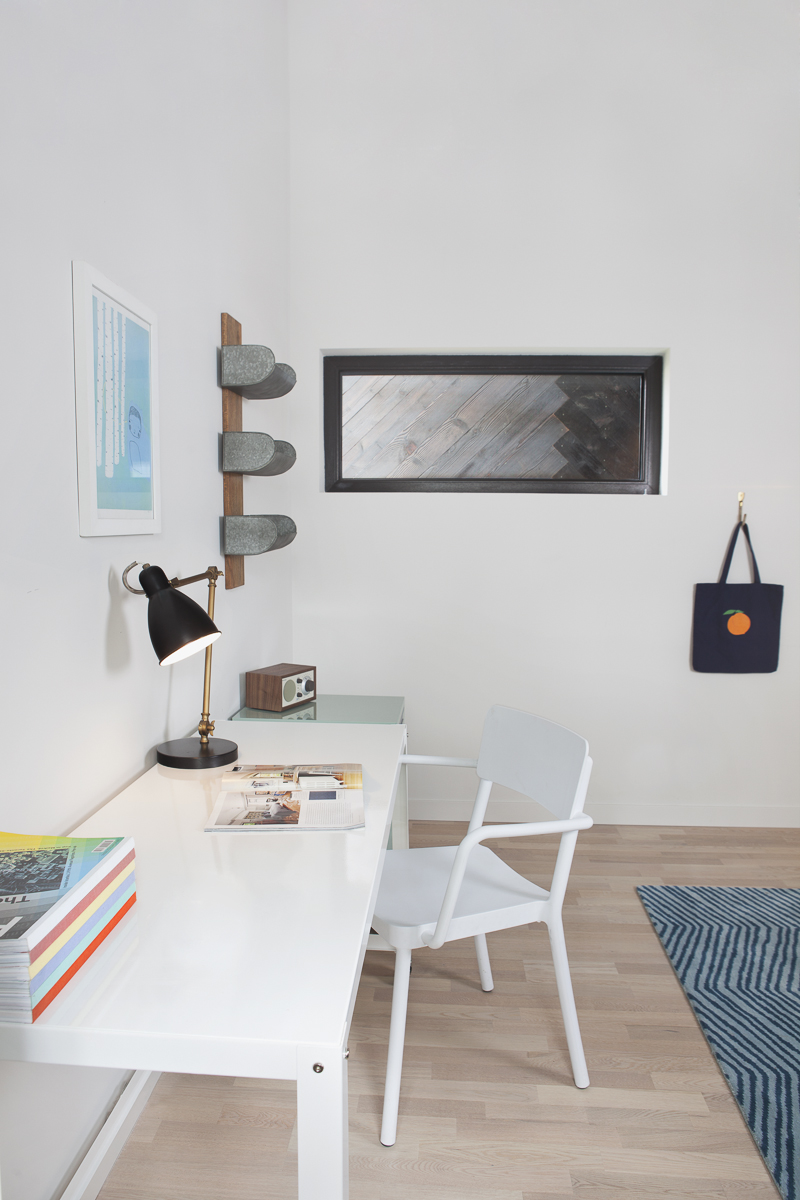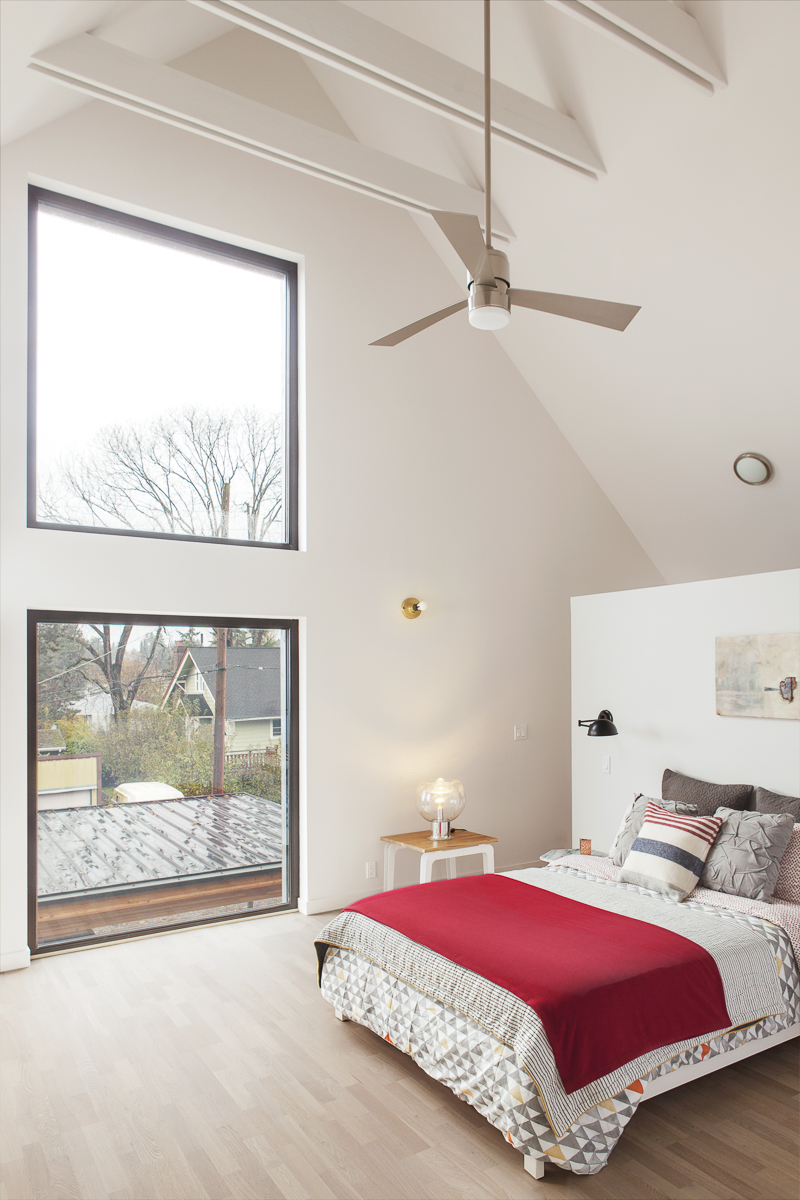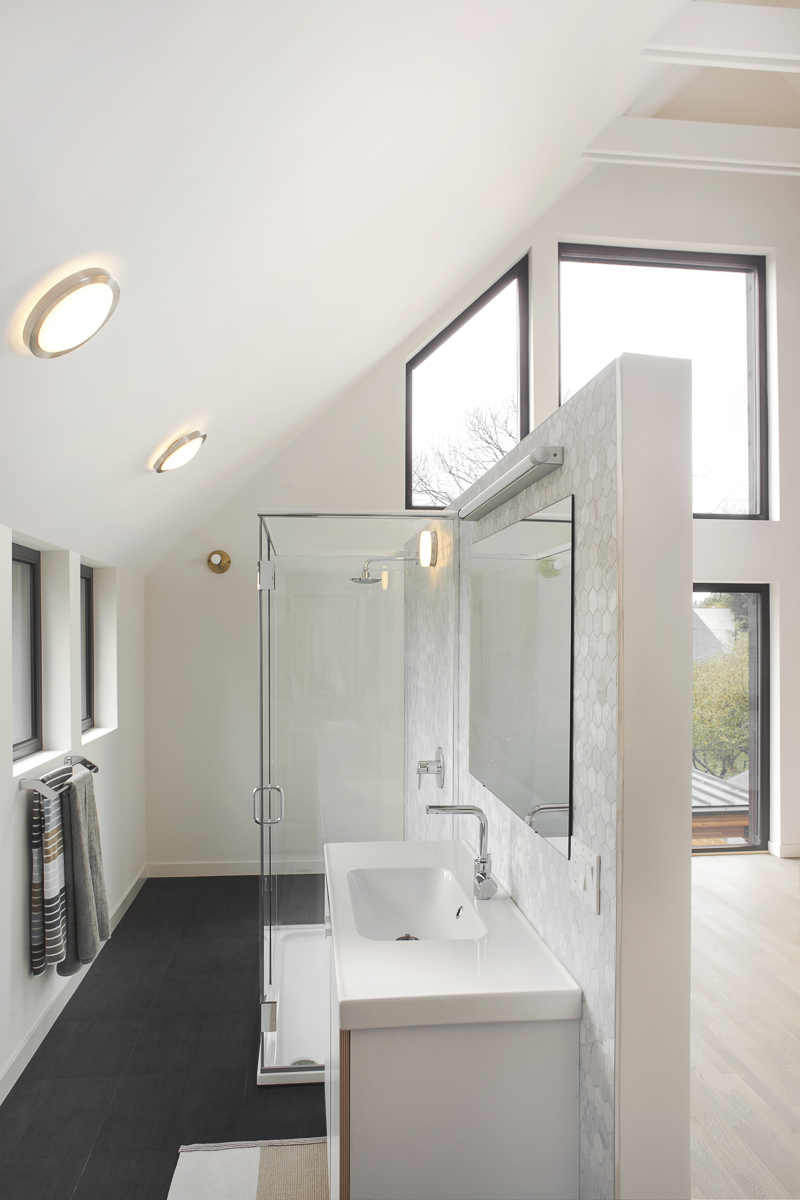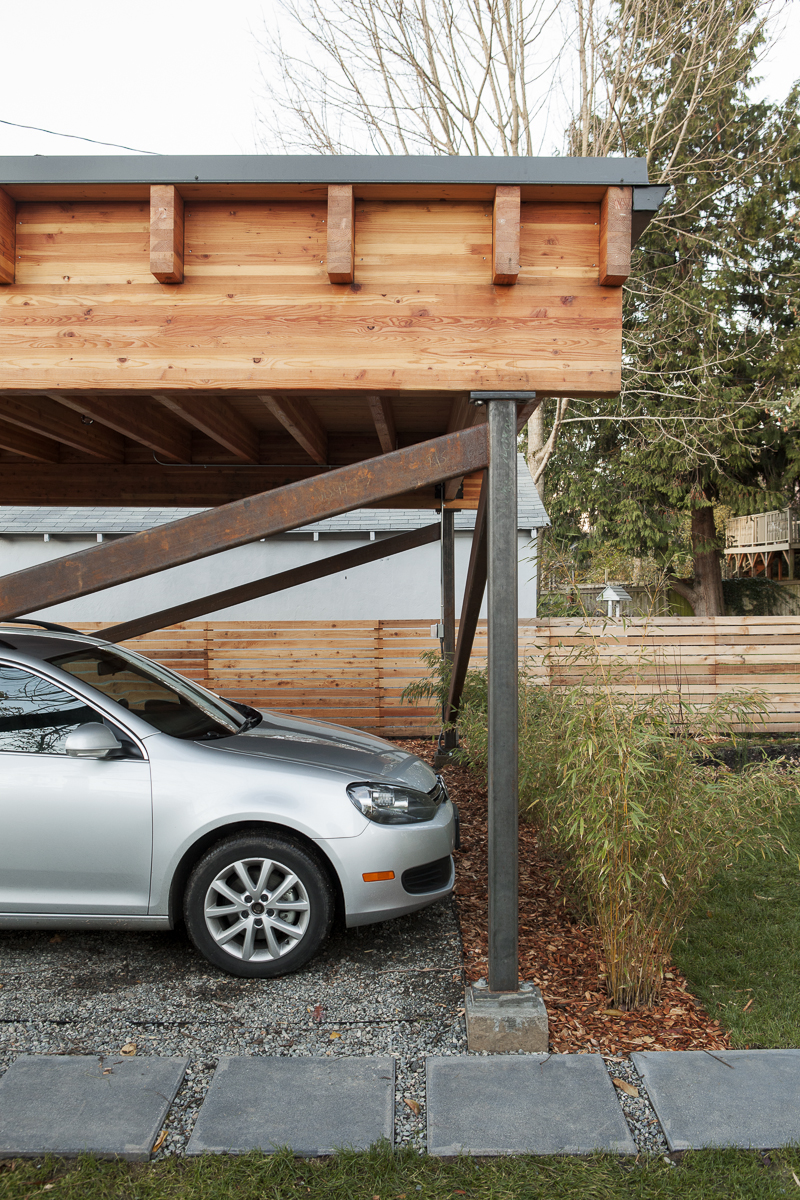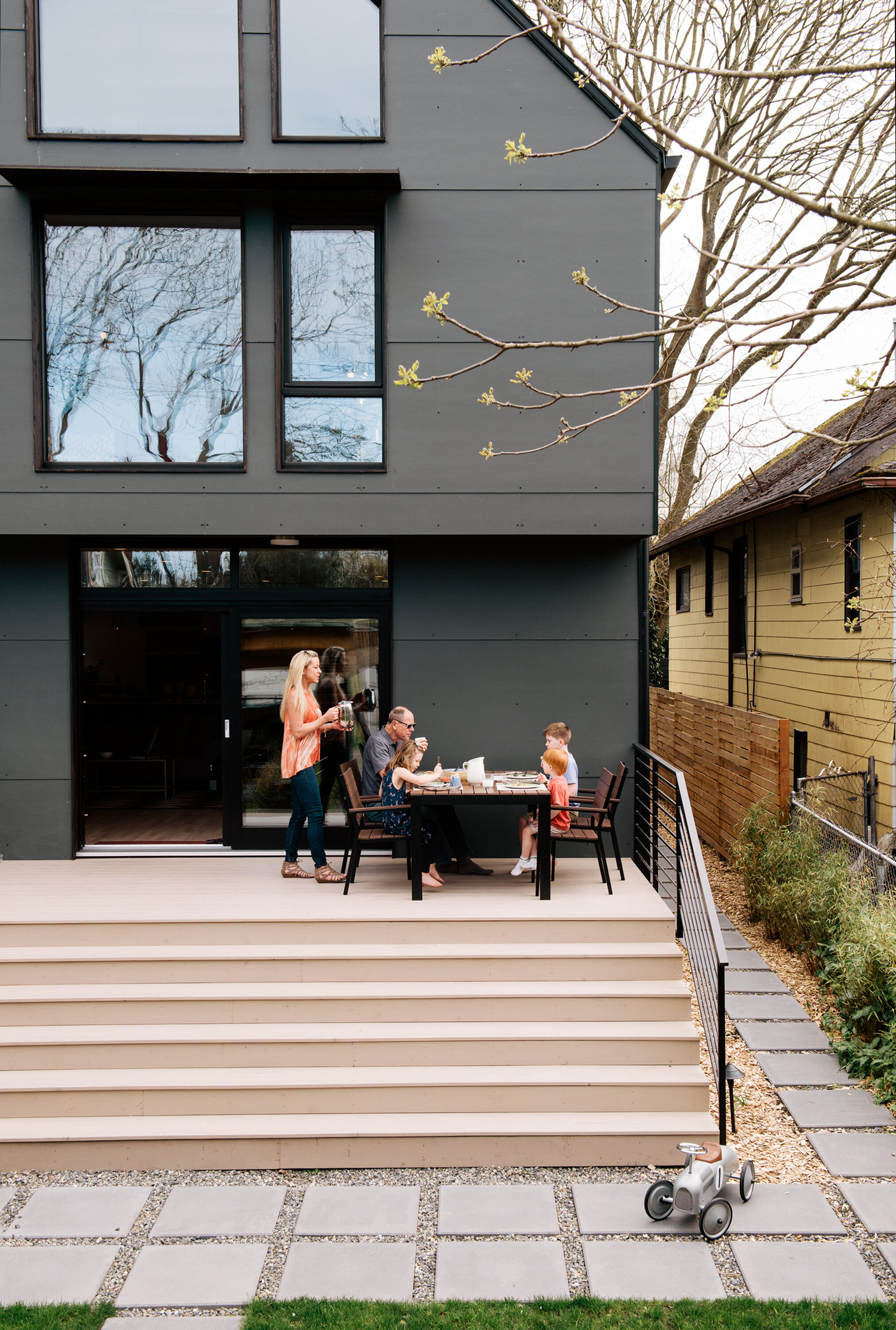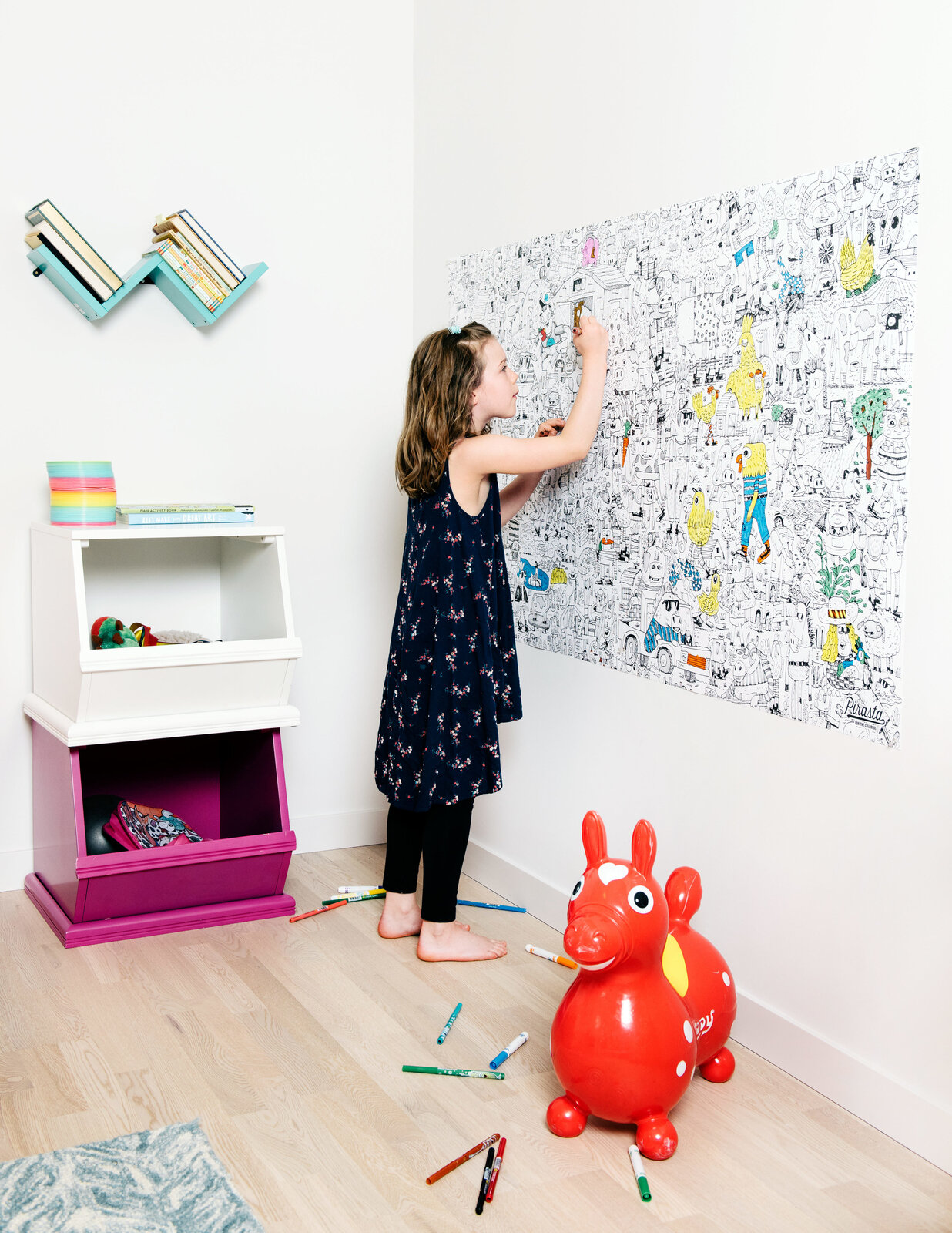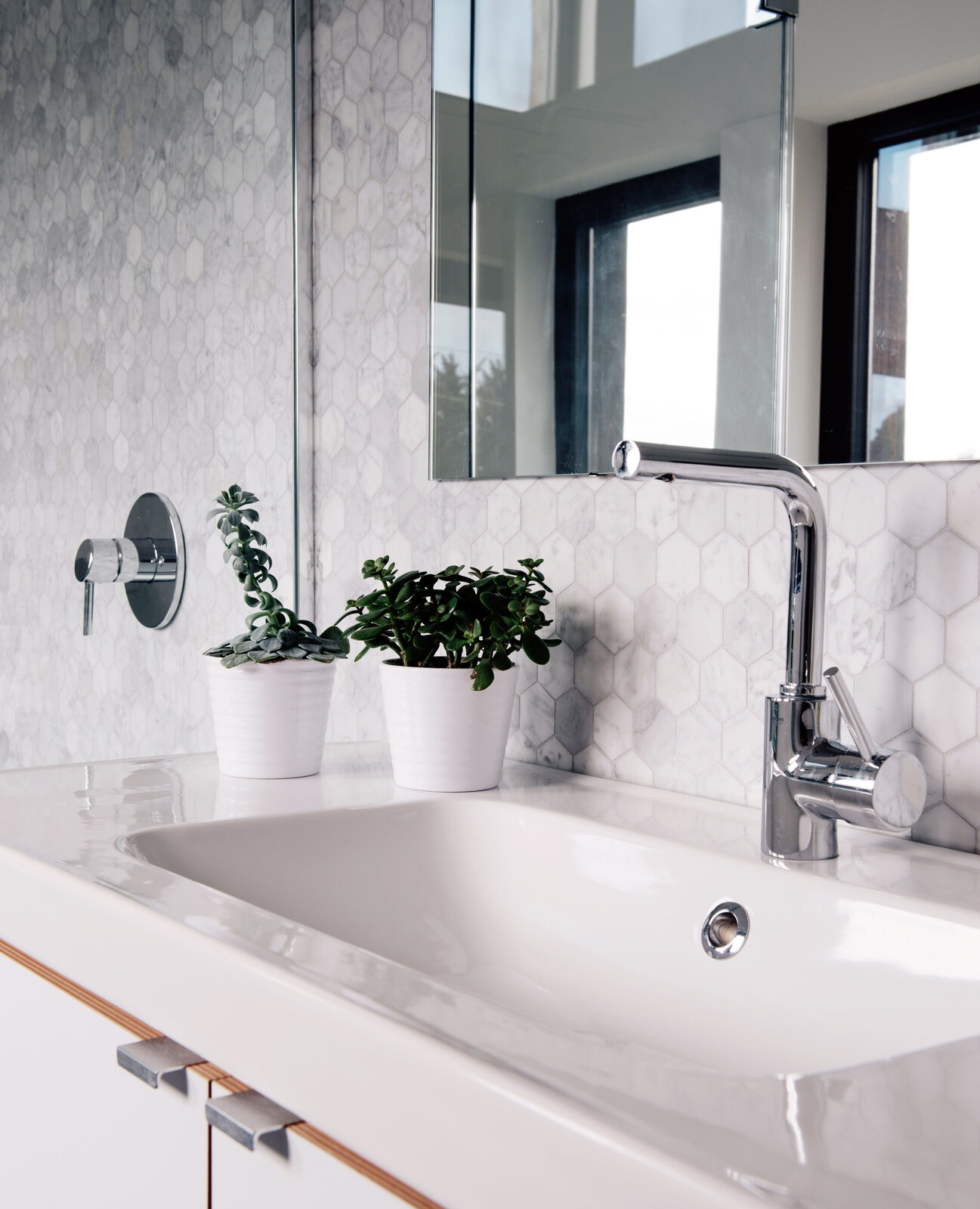Palatine Passive
Type: Single-family residence
Location: Greenwood, Seattle
Size: 2700 sf
Status: Completed September 2015
Construction: Blue & Yellow Builders
Photography: Shea Pollard
Conceived as a sustainable reinterpretation of a monolithic gable roof house, the Palatine Passive House integrates modern residential form with innovative building technologies. The certified passive house was designed and built by the architect. Apart from an abundantly glazed entrance gesture, the distinctive façade is windowless in order to meet passive house certification standards.
The unique façade is composed of hand-charred cedar in a herringbone pattern, adding a twist to a classic Northwest American building material. The dark patina complements the lush, tree-lined neighborhood streets, while the shou sugi ban treatment naturally seals the cedar, eliminating the need for regular maintenance in a rainy Seattle climate. Once inside, the large windows and white, minimal interior maximize natural daylight to create a light filled space that is private from the street.
The first level is a large open volume that spills out to the back yard for the social functions of the residential program. High ceilings on the second floor allow for a mix of private and loft spaces. An open double height circulation area joins the two levels and connects the public and private functions of the house.
In pursuing PHIUS certification, innovative building technologies and construction methods emerged in the envelope assembly, cladding fabrication, and energy management systems. Due to an airtight envelope, continuous high-performance insulation, and managed solar gain, the Palatine Passive House uses 90% less energy than required by local building code. The house employs a continuously filtered heat and moisture recovery ventilation system, resulting in excellent air quality and temperature control for a healthy, comfortable living environment. Kirio, a home management & control system, monitors all major energy components, optimizes efficiency, and allows residents to manage lighting, cooling, heating, and ventilation from a phone app. In a testament to the progressive design, engineers used the Palatine Passive House as testing ground for the system.


